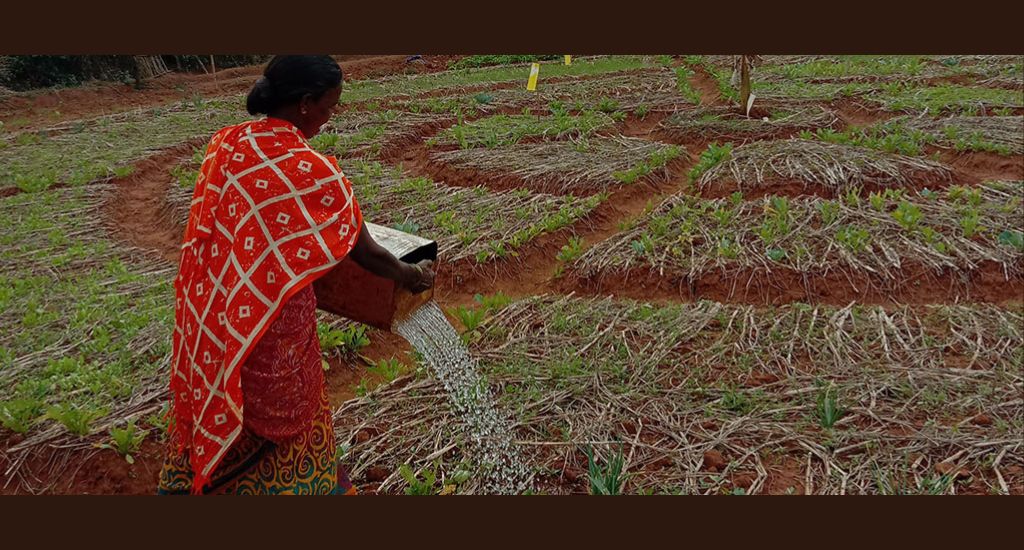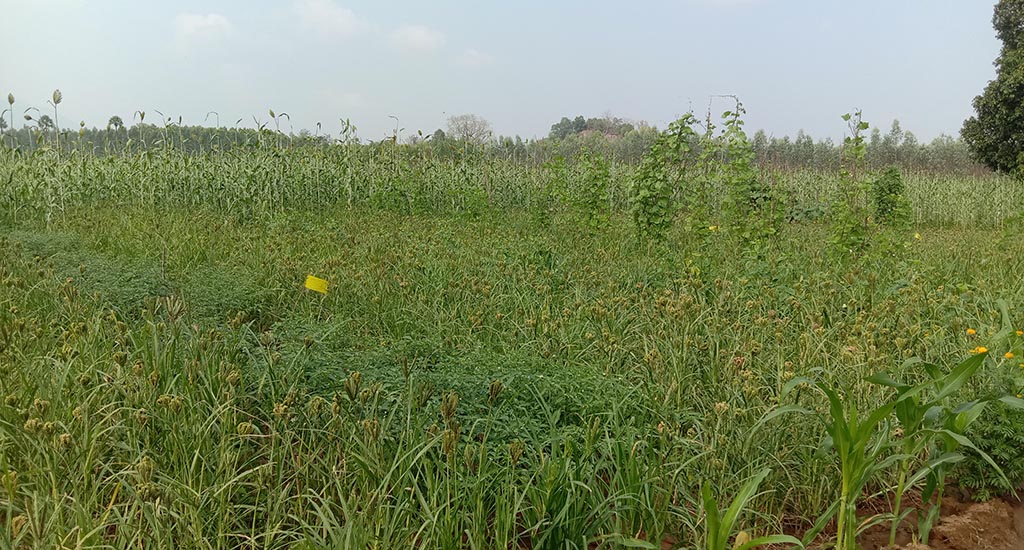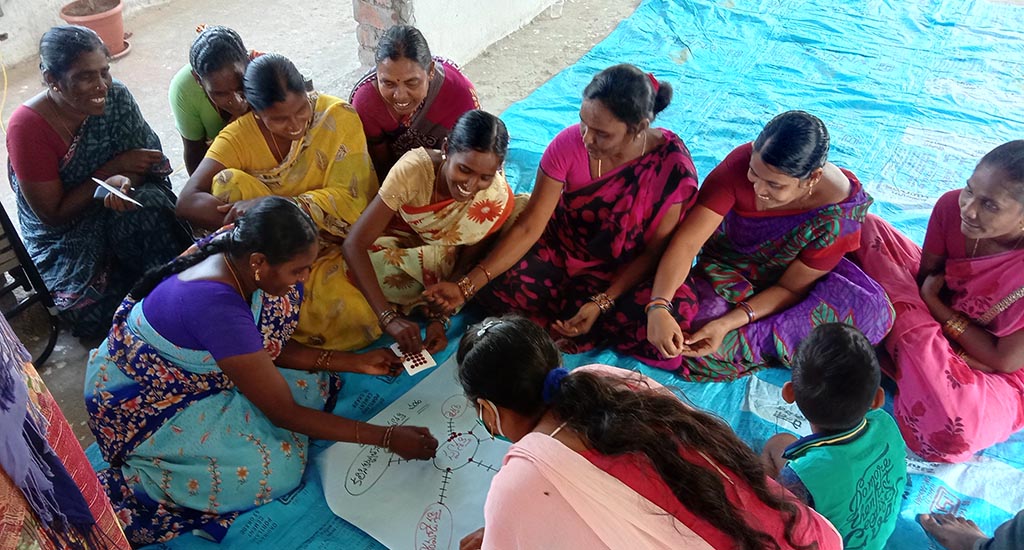
The dangerous state of women farmers
Women farmers face discrimination despite their contribution to the agricultural economy and protective laws. Self-help groups and women’s collectives offer them support and hope.

Women farmers face discrimination despite their contribution to the agricultural economy and protective laws. Self-help groups and women’s collectives offer them support and hope.
Trigger warning: content refers to rape and violence.
A staggering 80% of working women in India earn their living in agriculture.
As more rural men migrated to urban areas, more women entered the agricultural sector, according to the 2017-18 Economic Survey. They began taking on multiple roles from cultivators and labourers to entrepreneurs.
Yet very few of them actually own land – just 13% of rural women farmers in fact.
And while women have been gaining visibility in many sectors over the years, this is not happening in agriculture. Despite their contribution to the agricultural economy, women farmers are discriminated against. Rural women also face the triple burden of gender inequality, unstable prices and paying off loans, never mind being at the brunt end of violence. Laws meant to offer protection bring little solace.
Also Read | Women farmers suffer due to unequal land rights
Field studies reveal that single women farmers face multiple vulnerabilities and ridicule not only from men around the farm, on the roads, in the market, but also from the immediate and extended family members. Gender discrimination, sexual norms and power equations prevailing in the society contribute significantly to this situation.

But self-help groups and women’s collectives offer support and hope.
Nagamani, 28, hails from a small village in Ananthapuramu district. She got married at an early age, dropping out from high school. Her husband died of cardiac arrest when she was six months pregnant. She now lives with her 8-year-old son and her ailing mother-in-law.
Nagamani and her husband used to take care of their 5-acre mango orchard, cultivating groundnut, pulses and millets in an intercropping method. They followed natural farming which yielded encouraging results.
Many nights I wake up with nightmares. I sit through the night till dawn, holding my son close to me. It haunts me. I feel weak yet I have no option but to go to the field.
It was a happy family but with her husband’s demise everything changed drastically. She could not resume farming for almost a year as Nagamani was in her last trimester and then had post-delivery nursing needs.
Later Nagamani and her mother-in-law tried to restart farming but due to the distance and lack of male support, they couldn’t continue. The farm is about 3 km from their house and it was difficult for both the women to walk that distance every day with the small baby. Eventually Nagamani’s mother-in-law fell sick and stayed home taking care of the baby while the former started going for agricultural wage work for survival. When others suggested leasing out the farm or living in the farm itself, they were not confident due to their multiple vulnerabilities and the strong local political interference.
Strangers with political backing picked and sold the mangoes. Once Nagamani caught the goons red-handed and questioned, they threatened her of rape. She was depressed and desperately sought external support but in vain.
Also Read | Rural women farmers plough their way to financial freedom
“Many nights I wake up with nightmares. I sit through the night till dawn, holding my son close to me. It haunts me. I feel weak yet I have no option but to go to the field. I have to live for my kid’s future,” Nagamani said in dejection.
Despite the progressive law on prevention of sexual harassment at workplace in force for almost a decade now, the local complaints committees (LCCs) that are supposed to be a supportive body for unorganised sector are either not constituted or are not functional in many districts. Often rural working women are not aware of it.

Nagamani is angry with the system for not establishing any effective support systems for women working in the agriculture sector to deal with the distress. Gender norms and power equations prevailing in the society contribute significantly to this situation.
“If we raise our voice against harassment and abuse, it only aggravates the exploitation; fearing this we live with it,” she said apathetically.
Despite the multiple gender-based discriminations, women are playing an important role at every step in agriculture and its activities.
In this process the mahila sangha and self-help groups have been the critical forums for women to collectively voice their concerns, articulate their needs, learn together, get empowered and break the biases. Nagamani has joined a single women sangha.
“I’m hopeful now. The sangha is with me. Soon I will be able to cultivate my farm,” said Nagamani, her tone conveying great relief and hope.
Also Read | How a tribal woman farmer increases income with this new approach
The lead image shows a woman farmer watering a plant bed (Photo by P Prasanthi)
P Prasanthi is Secretary of Deeksha and Director Bhumika Women’s Collective, an organisation working for gender justice. She has a master’s in social work and a doctorate in adolescent girls’ empowerment. She has expertise in participatory training, research and documentation from a gender perspective, and works for the rights of vulnerable communities.